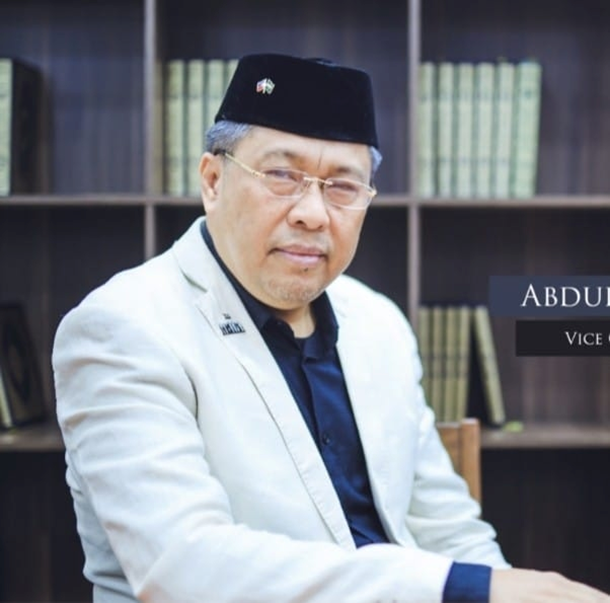* How does it positively impact on individual behavior, health discipline, social responsibility, peace, and order?
Why Muslim should abstain from eating and drinking the whole day at least a month every year. Is this merely a religious duty? Why is it too harsh and hard for a human being unlike other deeds?

By: Abdul
Hannan
M. Tago
There are many questions that others would raise especially in the labor and work-related concern. For certain people may think that fasting could affect the performance of a worker or a laborer that impacts the productivity of the county.
Is the month preserving and uphold peace and order. What does do for the health, social responsibility and harmony of a society or a nation as whole.
This piece provides some highlights of the month of Ramadan based on a contemporary and worldly perspective that may serve the information needs of our community in the Philippines. This for the sake of knowledge sharing and understanding of this practice of more than a billion of followers who have been doing this for more than 1444 years already and beyond.
This is both physical and mental training for not only health benefits but also creating a God-fearing society with compassion and love to the misfortune and needy. The actual training directly educates the community on how to share and take care of the poor, orphanages and other communities who do not possess their basic needs.
Health aspect:
This is a system that regulates the acts and behavior of a society, individuals, and people as whole. This is a must when some societies become uncontrolled in their diets and food consumption that harm their body and become a big burden in the government health expenditures for those under government care and catastrophic for those big numbers of populations living on their own.
In some parts of the world, they even consume harmful elements or creatures that are not described as allowable or consumable as food or drinks. This caused serious illness or even pandemic in some areas in the world.
Discipline aspect:
When a society becomes addicted not only to smoking but harmful drink and drugs hence Ramadan is here to stop the whole nation from what they have accustomed. This makes their body relax from the harmful eating behavior. Such bad habits need hard training to get rid of them, abstaining from eating and drinking as well as intercourses is the viable and effective solution to these bad habits. This religiously would change the behavior of such individuals.
This system came with this yearly training to combat such bad practices and correct and evaluate the various ways of transmitting a society into a more disciplined community. How about the needy people. What Ramadan does in what is termed today as human responsibility.
Human responsibility aspect:
When a human being observes fasting with a purpose as prescribed by this holy month, this indirectly makes you feel hardship from hunger and thirst the same what poor people do suffer from. That is why Ramadan’s main characteristic among others is generosity and mercy. Those who fast offer a lot during Ramadan and share their wealth. They open their big hearts to anybody in need as a result, somebody who provides an “iftar” , a food to a fellow, he/she gets a full reward equivalent to one who fasts the whole day.
When a society becomes materialistic and merciless do not share a little from their extra savings, this creates jealousy, hate and even crimes in some neighborhoods.
Prevents crimes:
Ramadan is a direct answer and cure for such evil deeds. It prevents others from committing crimes against his neighbors because somebody observing fasting takes care of others by sharing what he/she possesses. Ramadan helps a society or community to uplift their economic situation by sharing and helping each other thus minimize crime rates.
Spiritual aspect:
Ramadan is one of the Five Pillars of Islam and is the ninth month in the Islamic lunar calendar. To millions of Muslims, it is a sacred period dedicated to fasting, intensive prayer, sacrifice, worship, supplication, repentance, self-purification and spiritual attainment.
Every year Muslims redesign their lives to focus on the goals of Ramadan: an awareness of God and a humble thankfulness for whatever blessings He has granted.
Ramadan is a fundamental pillar of Islam as it helps Muslims develop a consciousness of God. The Holy Quran encourages its believers to develop this consciousness of God, as without it faith is meaningless.
There is a quote from the Quran which reads, ‘Oh you who believe fasting has been prescribed for you as it has been prescribed for people before you so that you may be God conscious’ (2:183), which shows the close relationship between fasting and God consciousness.
We believe that fasting makes us more conscious of God and that by restraining ourselves during this holy month for the pleasure of Allah, we feel the desire to obey Him and move closer to His love.
Ramadan is therefore the month of peace and God consciousness.
Alongside the spiritual benefits, we believe that there are many health benefits of fasting as well. When we fast, our entire digestive system is at rest; fasting gives our organs time to repair and rejuvenate, leading to improved functioning of the digestive system.
Ramadan is not just about fasting – it is also a month to refrain from bad deeds and intimacy. The development of self-control, self-discipline and sacrifice out of sheer obedience of Allah gives us pleasure too.
To conclude, here are the benefits of Ramadan:
- Pleasure of God
- Closeness to God
- Forgiveness of sins
- Health benefits
- Self-discipline
- Self-reflection
- Spiritual reform
- Dr. Abdul Hannan M. Tago is Executive Assistant IV at the Office the Secretary, National Commission for Muslim Filipinos, and Executive President, Ulama Supreme Council of the Philippine for Peace and Development.